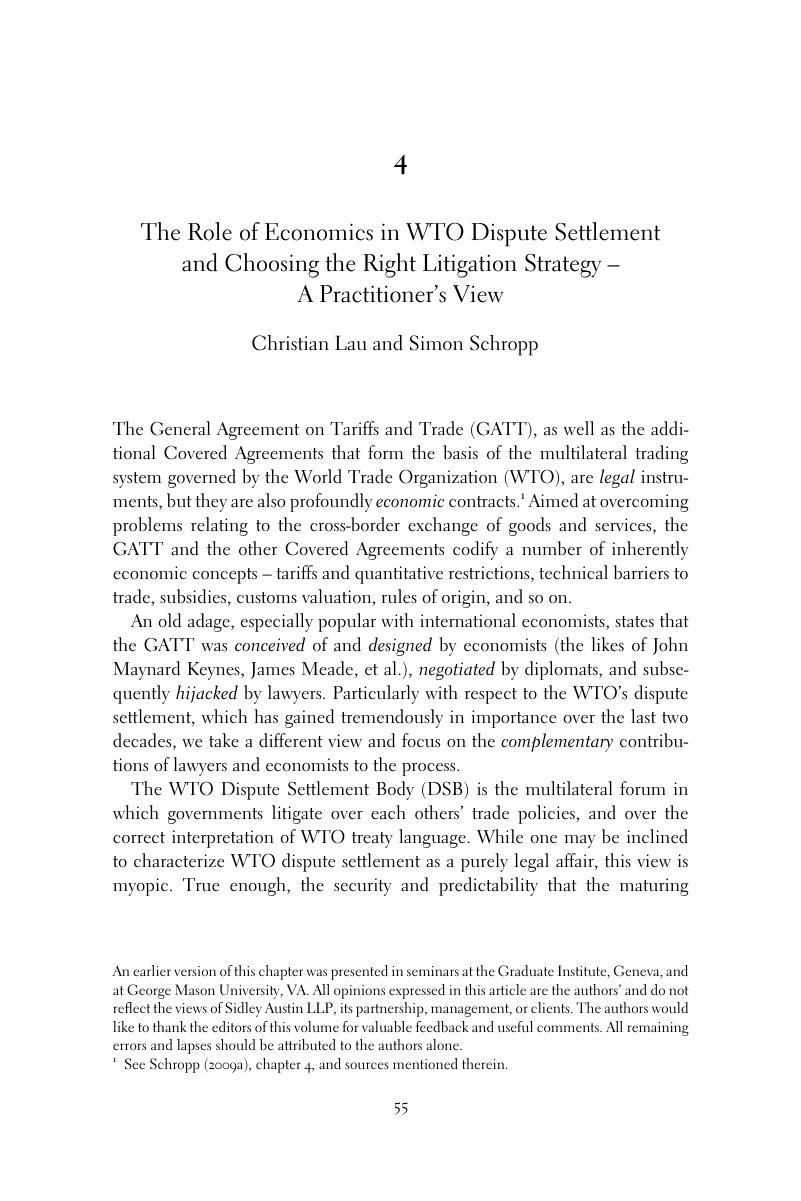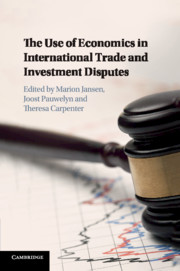Book contents
- The Use of Economics in International Trade and Investment Disputes
- The Use of Economics in International Trade and Investment Disputes
- Copyright page
- Contents
- Figures and Tables
- Contributors
- Acknowledgements
- 1 Introduction
- Part I The Use of Economics in International Trade and Investment Disputes: A Practitioner’s View
- 2 Integrating Economic Analysis into WTO Dispute Settlement Practice: A View from the Trenches
- 3 Present at the Creation: Economists and Accountants in International Trade Law Practice
- 4 The Role of Economics in WTO Dispute Settlement and Choosing the Right Litigation Strategy – A Practitioner’s View
- 5 On Interpretation and Economic Analysis of Law
- 6 The Client’s Perspective
- 7 The Use of Economics in Competition Law: What Works and What Doesn’t Across National Jurisdictions?
- Part II The Use of Economics in International Trade Disputes: Economic Versus Legal Thinking
- Part III The Use of Economics in International Investment Disputes: Liability and Damages
- Conclusion
- Appendix to the Conclusion
- Index
- References
4 - The Role of Economics in WTO Dispute Settlement and Choosing the Right Litigation Strategy – A Practitioner’s View
from Part I - The Use of Economics in International Trade and Investment Disputes: A Practitioner’s View
Published online by Cambridge University Press: 13 April 2017
- The Use of Economics in International Trade and Investment Disputes
- The Use of Economics in International Trade and Investment Disputes
- Copyright page
- Contents
- Figures and Tables
- Contributors
- Acknowledgements
- 1 Introduction
- Part I The Use of Economics in International Trade and Investment Disputes: A Practitioner’s View
- 2 Integrating Economic Analysis into WTO Dispute Settlement Practice: A View from the Trenches
- 3 Present at the Creation: Economists and Accountants in International Trade Law Practice
- 4 The Role of Economics in WTO Dispute Settlement and Choosing the Right Litigation Strategy – A Practitioner’s View
- 5 On Interpretation and Economic Analysis of Law
- 6 The Client’s Perspective
- 7 The Use of Economics in Competition Law: What Works and What Doesn’t Across National Jurisdictions?
- Part II The Use of Economics in International Trade Disputes: Economic Versus Legal Thinking
- Part III The Use of Economics in International Investment Disputes: Liability and Damages
- Conclusion
- Appendix to the Conclusion
- Index
- References
Summary

- Type
- Chapter
- Information
- Publisher: Cambridge University PressPrint publication year: 2017
References
- 1
- Cited by



